7 best trees and shrubs to soundproof your yard
We’ve found the best trees and shrubs to block noise from your neighbors
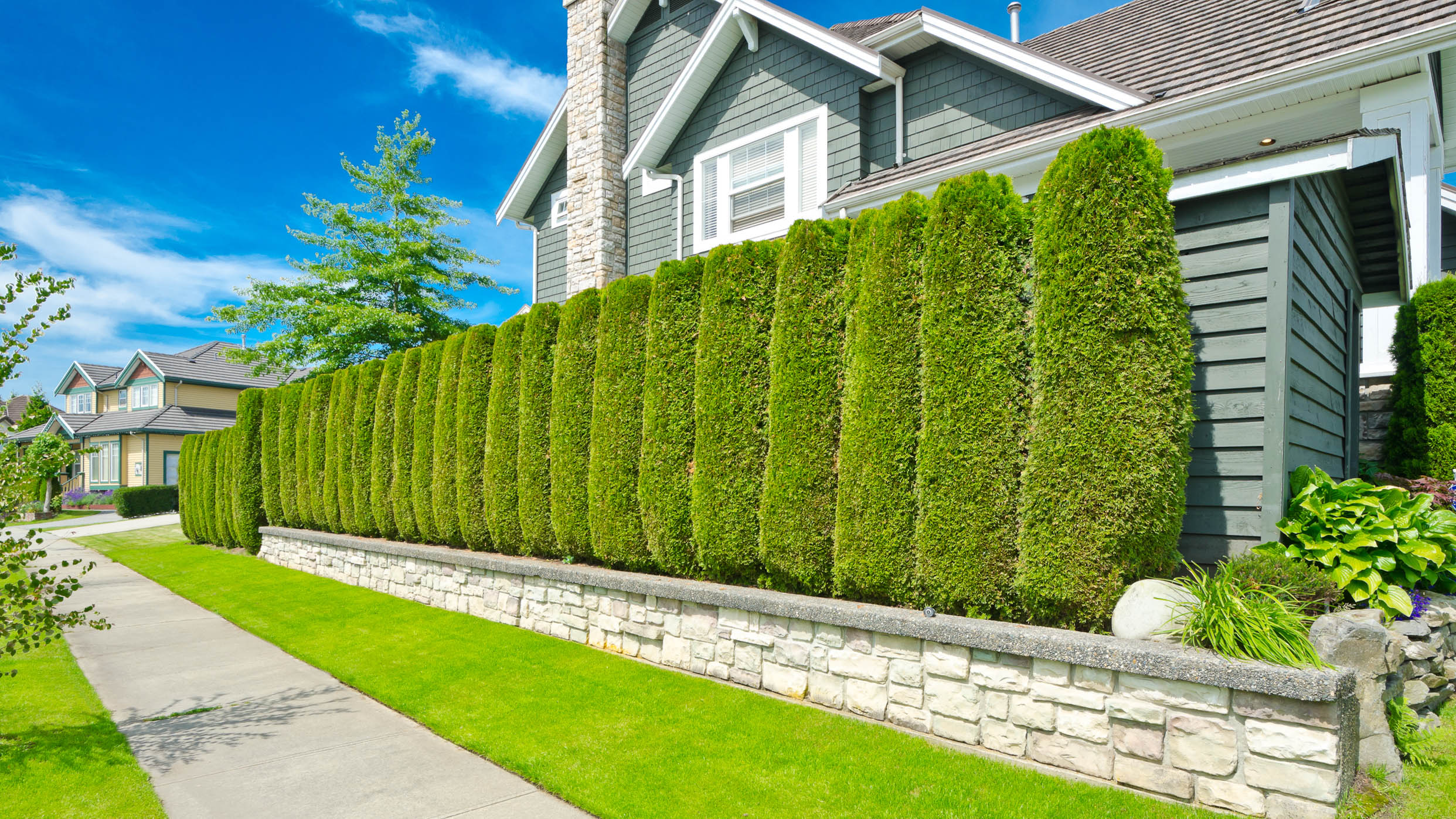
Crafting and maintaining the perfect yard can be a tricky process. You need to learn how to plant grass seed the right way, while avoiding these 7 mistakes to avoid when you water your lawn. Then there’s your flower beds and edging to consider. The plants, shrubs and trees you choose can make a difference to the overall environment. They can also help you out where neighbors are concerned too.
Depending on your location and landscaping, neighbors can be closer than you think, prompting you to find 7 plants to create more privacy in your backyard. But, even if you have a good distance between homes, noise can still travel far, making it difficult to relax outdoors and fully enjoy your space. Luckily a few well placed shrubs and trees of the right variety can help here. If you’re keen to learn more, we’ve listed 7 of the best shrubs and trees to soundproof your yard.
Want to spruce up your porch? Here are the 7 best porch plants to showcase your home. Plus, these 5 clever planting tricks will make your small backyard look bigger.
1. Spruces
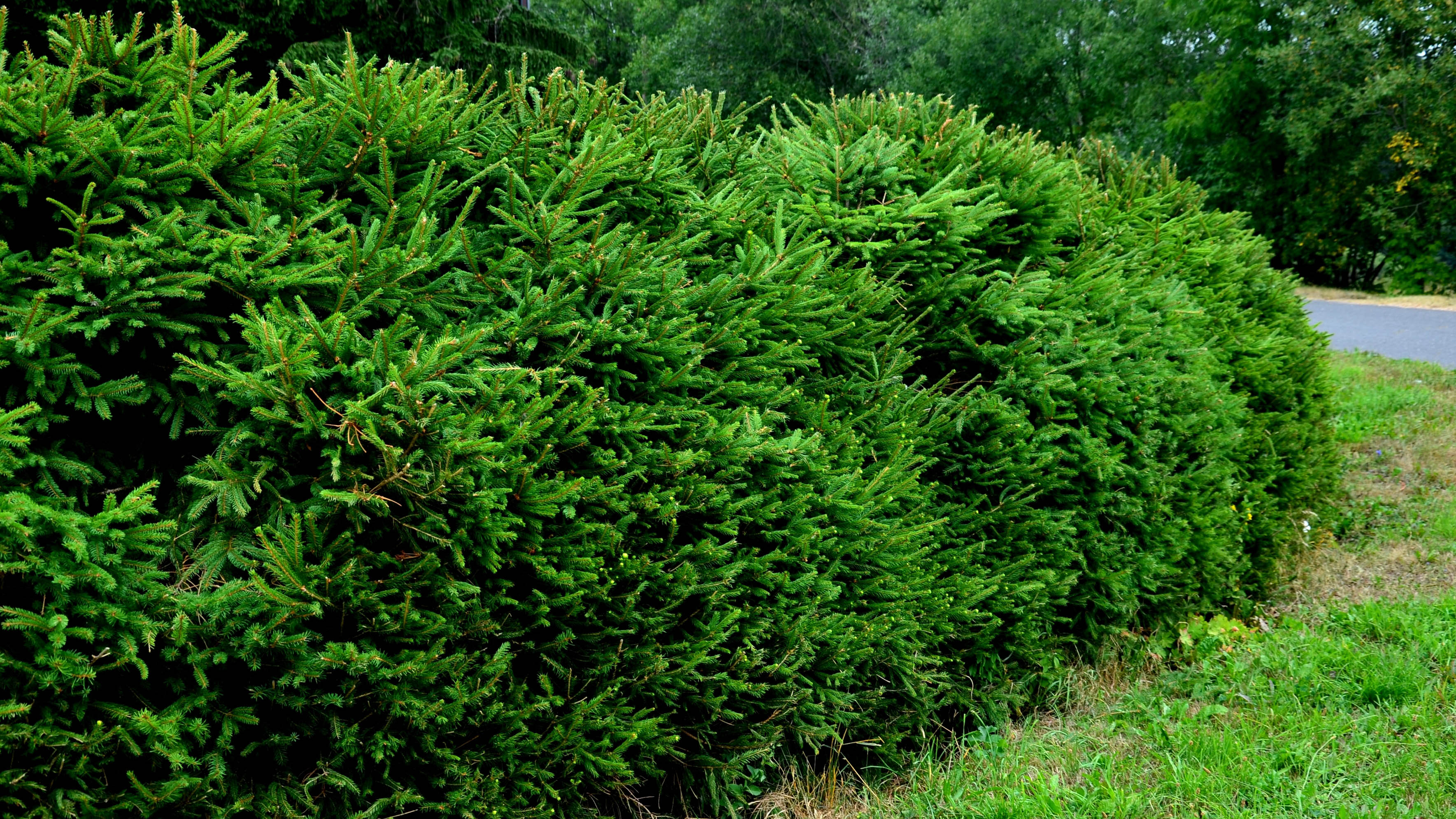
A spruce is a hardy evergreen tree or shrub which grows all year round — you may know it for its popular use as a Christmas tree over the holidays. There are 35 species in total, which range in color and shape. But, one thing they all have in common is a dense foliage of square-shaped needles. These often grow close to the ground, resulting in an effective noise barrier as well as sufficient protection from the wind.
Growing a barrier of spruce trees around the edge of your yard, where the branches intertwine, can prevent noise from traveling through. Plus these can live for hundreds of years, depending on the variety, so it offers a permanent solution. Spruces require lots of sunlight to grow, and generally thrive in cool, dry climates with moist soil. They grow best in USDA zones 3-8. Spruce trees generally aren’t toxic to dogs, but the needles can cause issues if ingested in excess and it’s not great for them to chew on either, so keep an eye on your pooch.
2. Bamboo
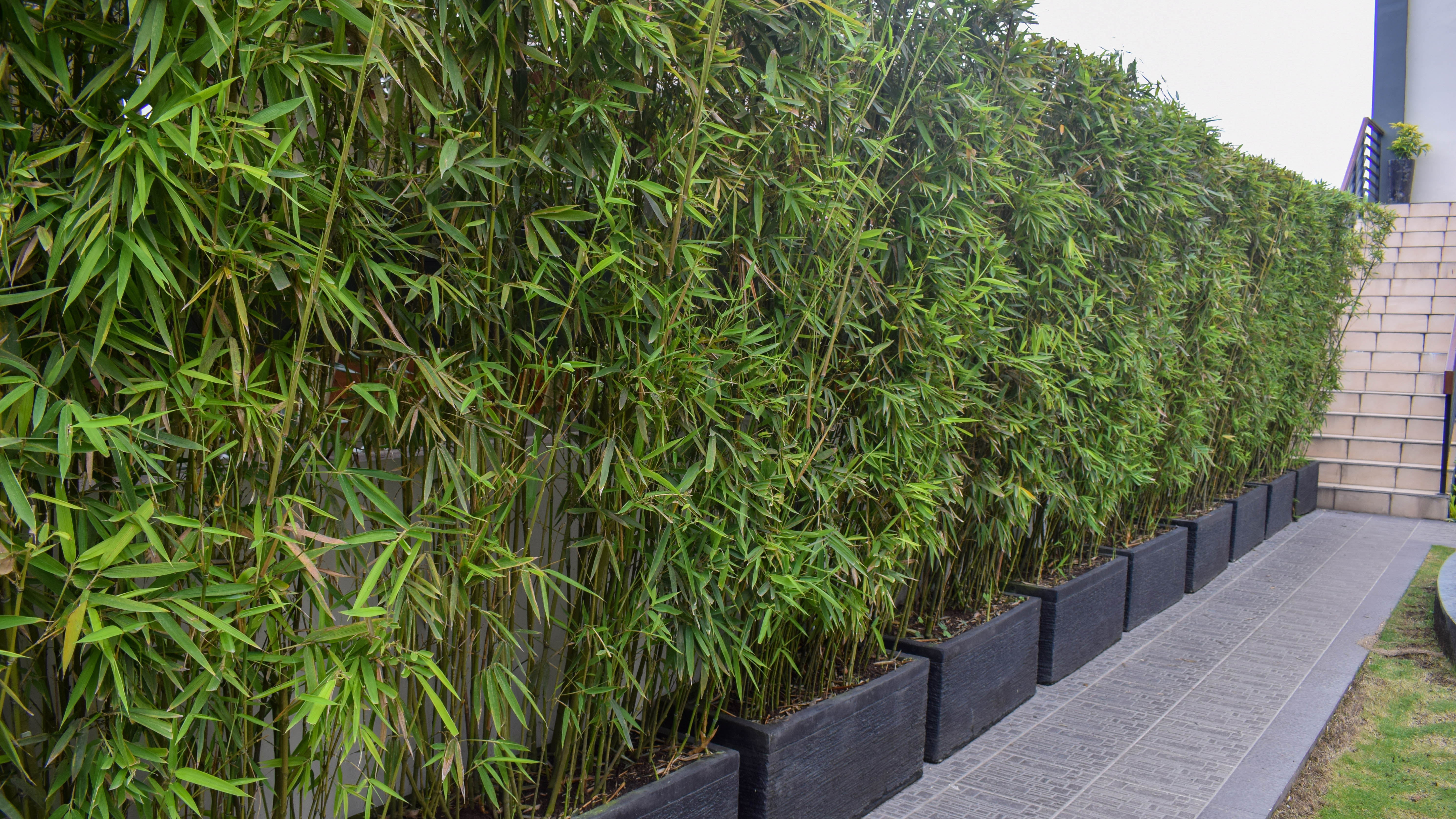
Bamboo is famous for its fast-growing and hardy nature. It’s also known to be unruly, which it’s one of the 9 invasive plants to keep out of your yard. However, there are two types of bamboo to be aware of — ‘running’ and ‘clumping’. ‘Running’ can grow out of control quickly, spreading via rhizomes underground, so steer clear of this invasive variety. Whereas ‘clumping’ is easier to manage and generally considered to be non-invasive. It clumps as it grows to form a dense wall and remains compact in nature.
Because of the thick and dense wall that clumping bamboo provides with its canes, we recommend it as one of the 7 plants to create more privacy in your backyard. But, it can come in handy for noise reduction too. Considering the pace at which it grows, it can reach an appropriate size with speed as well. The best conditions, including the USDA zones, for growing clumping bamboo will vary depending on the variety you choose. However, bamboo generally likes plenty of water and well-drained soil which is slightly acidic in nature. Slender weaver bamboo is a good choice for privacy and noise control. Make sure you check the full height of the bamboo type you choose to manage expectations — some can grow as tall as 30 feet. Bamboo is non-toxic to cats and dogs, according to the ASPCA, which is a bonus.
Sign up to get the BEST of Tom's Guide direct to your inbox.
Get instant access to breaking news, the hottest reviews, great deals and helpful tips.
3. Pines
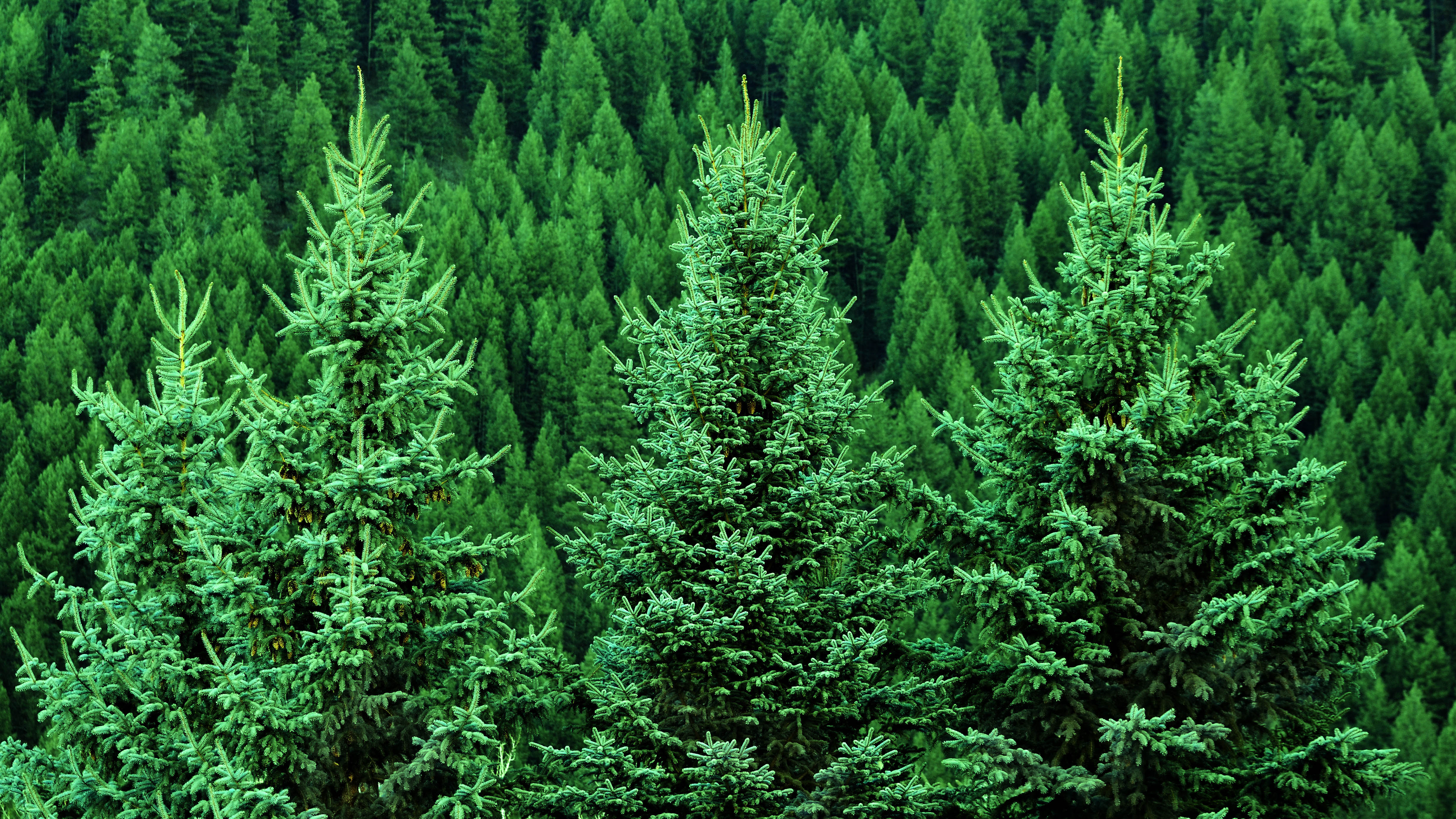
Pines are another evergreen variety of tree (and, more rarely, shrub) which can grow to enormous heights — some can reach over 100 feet tall. They appear very similar to spruces in that the foliage consists of dense needles, but while the needles are attached to the tree individually for spruces, they form in clusters on pines. Pine trees are effective at blocking sound thanks to this same dense nature. Plus, they can create added shade for your yard and act as an effective windbreak.
Much like spruces, you need to create a barrier of pine trees for best impact on noise. These trees are generally very hardy in nature and can survive a range of conditions. Most varieties are disease and pest resistant too, which is a bonus. While young, they need 1-2 inches of water a week until established. Once mature, they’re pretty self sufficient, although may require water in times of drought. These are generally non-toxic to dogs once again, but take care that needles aren’t ingested, as this can cause similar issues to those mentioned for spruces.
Here’s how to grow a Christmas tree and keep it for next year.
4. Arborvitaes
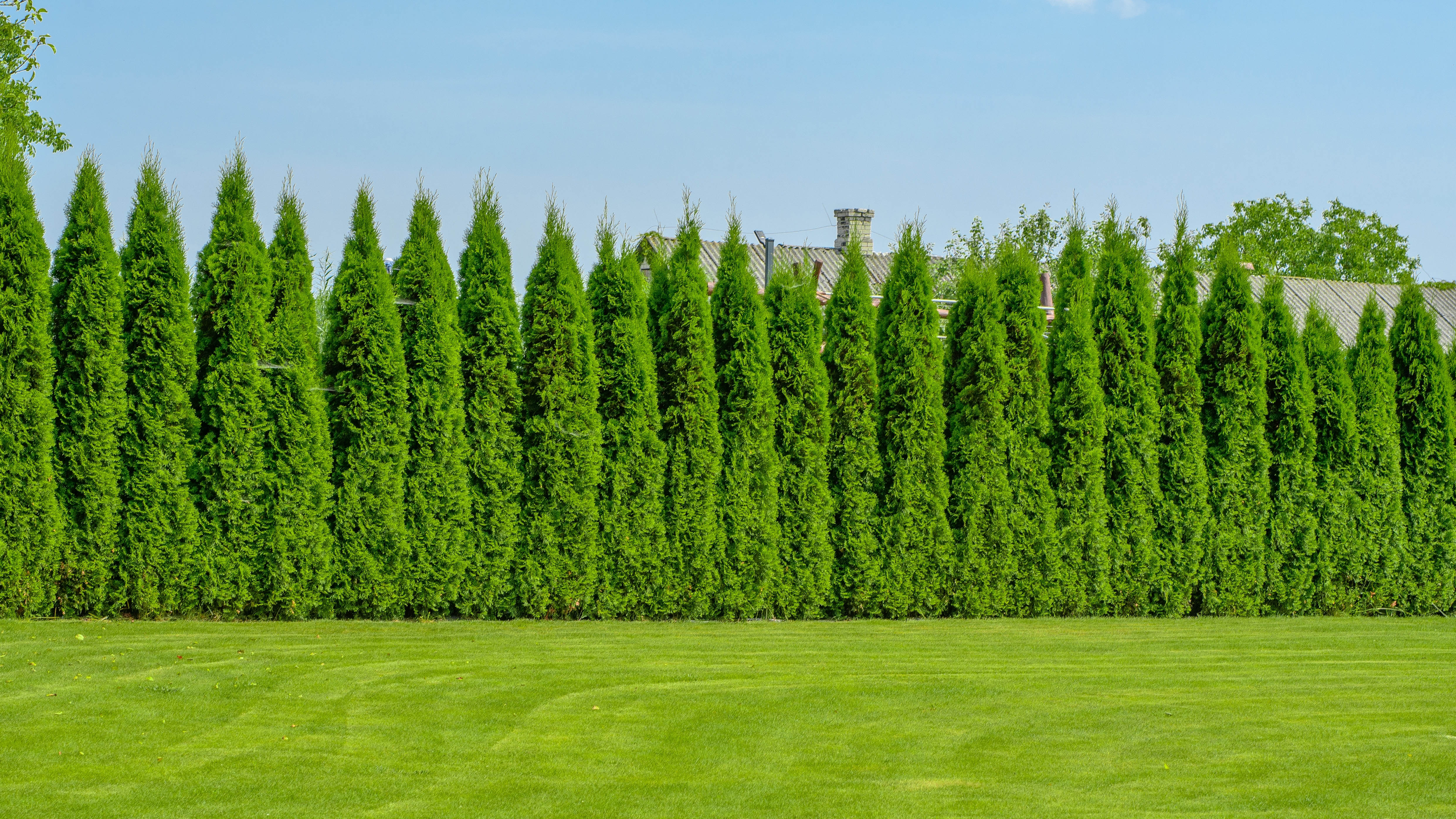
Also known as thuja, arborvitae is another evergreen tree or shrub which provides coverage all year round. Its scale-like leaves form a dense and almost ‘fluffy’ appearance, which gives it a hedge-like nature when lined up. It produces a fresh citrusy aroma and the wood itself supplies arborvitae oil, which features warm and earthy tones. This is readily available to buy online, such as this Like Mine Arborvitae Essential Oil ($8, Amazon). It has more uses than this though — that same dense foliage provides an effective barrier against noise.
Line these trees or shrubs up to create your very own noise barricade. They can reach up to 60 feet high and 15 feet wide, so that's a thick wall. Arborvitaes are generally cold-hardy, thriving in moist, well-drained soil. Hardy to USDA Zone 3, these trees prefer a loamy consistency of soil with a pH of between 6.5 to 8.0. You can always buy a soil test kit to confirm conditions, such as this MySoil Soil Test Kit ($29, Amazon).
5. Boxwood
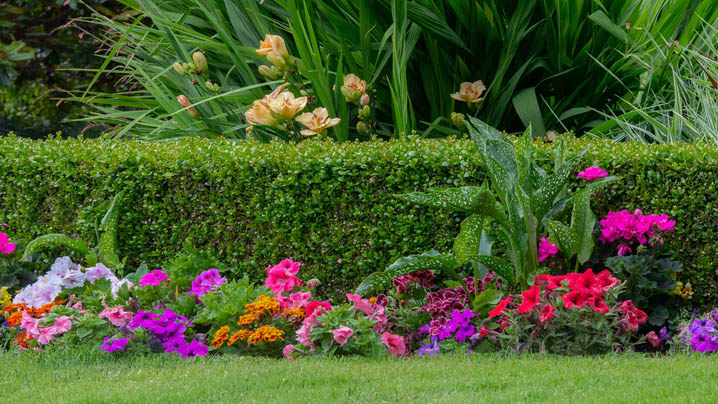
Boxwood is one of the best shrubs for shaping and landscaping. It produces thick and dense foliage which can be trimmed into the perfect hedge — so get your best pruning shears and best gardening gloves ready. As another evergreen option, it provides color and structure throughout the year. And seeing that some varieties can reach heights of up to 20 feet, it’s ideal for keeping excess noise to a minimum. As with other options on the list, its soft structure will absorb noise better versus hard foreign objects, such as a wooden fence.
Make sure your boxwood has access to full or partial sun in terms of placement. With a slow-growing nature, it’s easy to care for, requiring regular water until established with well-draining soil. Keep in mind that this isn’t the best option for protecting against high winds though. It can be damaged in dry winter winds, leading to winter bronzing and discoloration. Boxwood is also toxic to both cats and dogs according to the ASPCA , so steer clear of this option if you have pets.
6. Ground cover
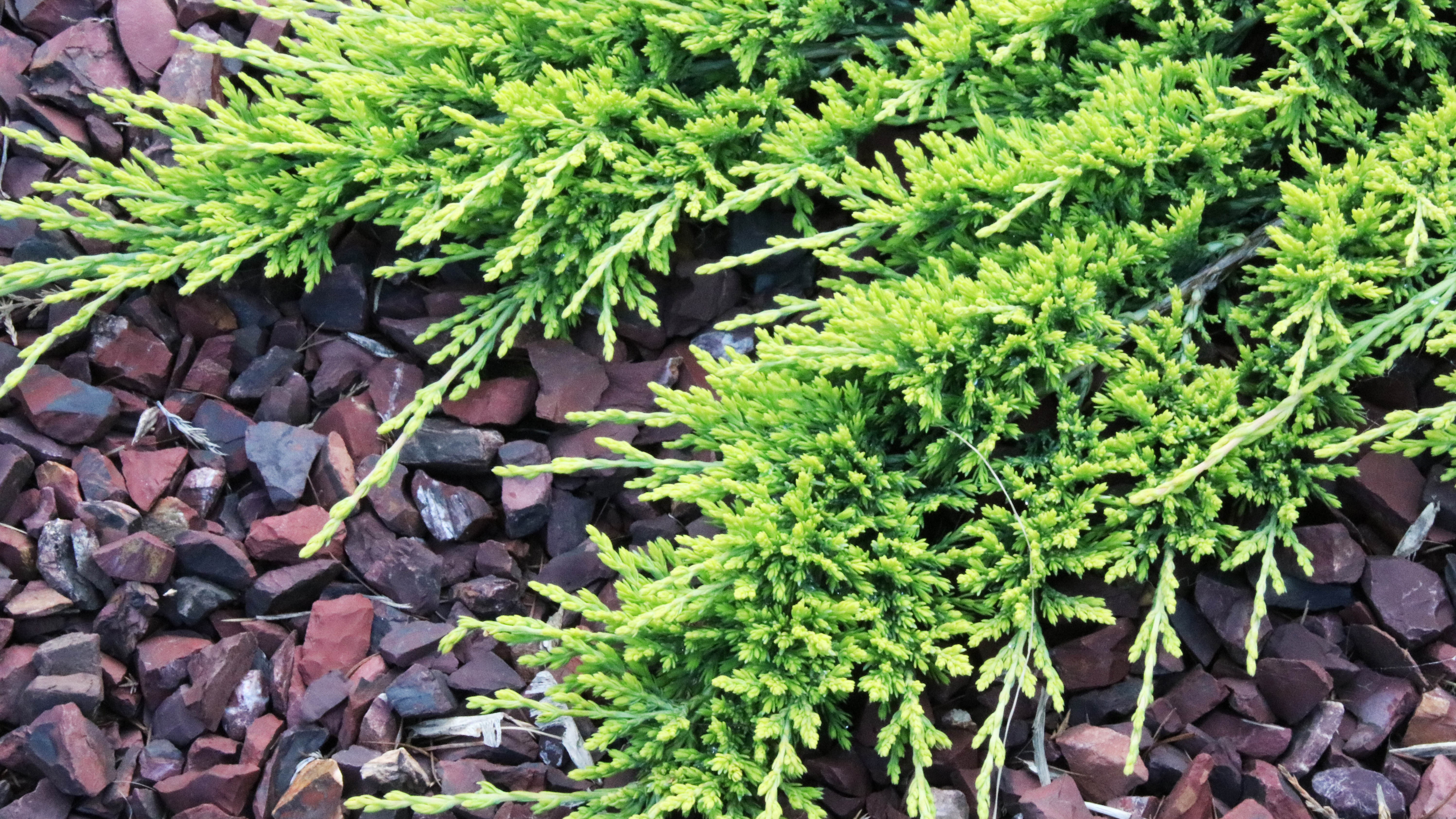
We’ve mentioned a fair few trees on this list so far, but if the foliage doesn’t reach all the way to the ground, there’s still space for noise to travel. Ground cover plants can help you out here. These grow low and wide, which makes them effective at covering bare soil spots where weeds can easily crop up. If you opt for a dense broadleaf variety, it can also fill in the gap beneath the trees, so to speak, and provide added noise reduction. Want to know more? Here are 7 uses for ground cover plants.
Many kinds of ground cover can serve the purpose here. English ivy and creeping juniper both form a thick carpet of foliage for instance. Although, take care to research your potential ground cover. Some species, such as ivy, can spread rapidly and even become invasive. Stick to plants which suit the space and conditions of your yard, and make sure they won’t grow unruly. Make sure it's safe to keep around your pets too. Ground cover varieties feature in our list of 7 plants that prevent weeds in your yard.
7. Hollies
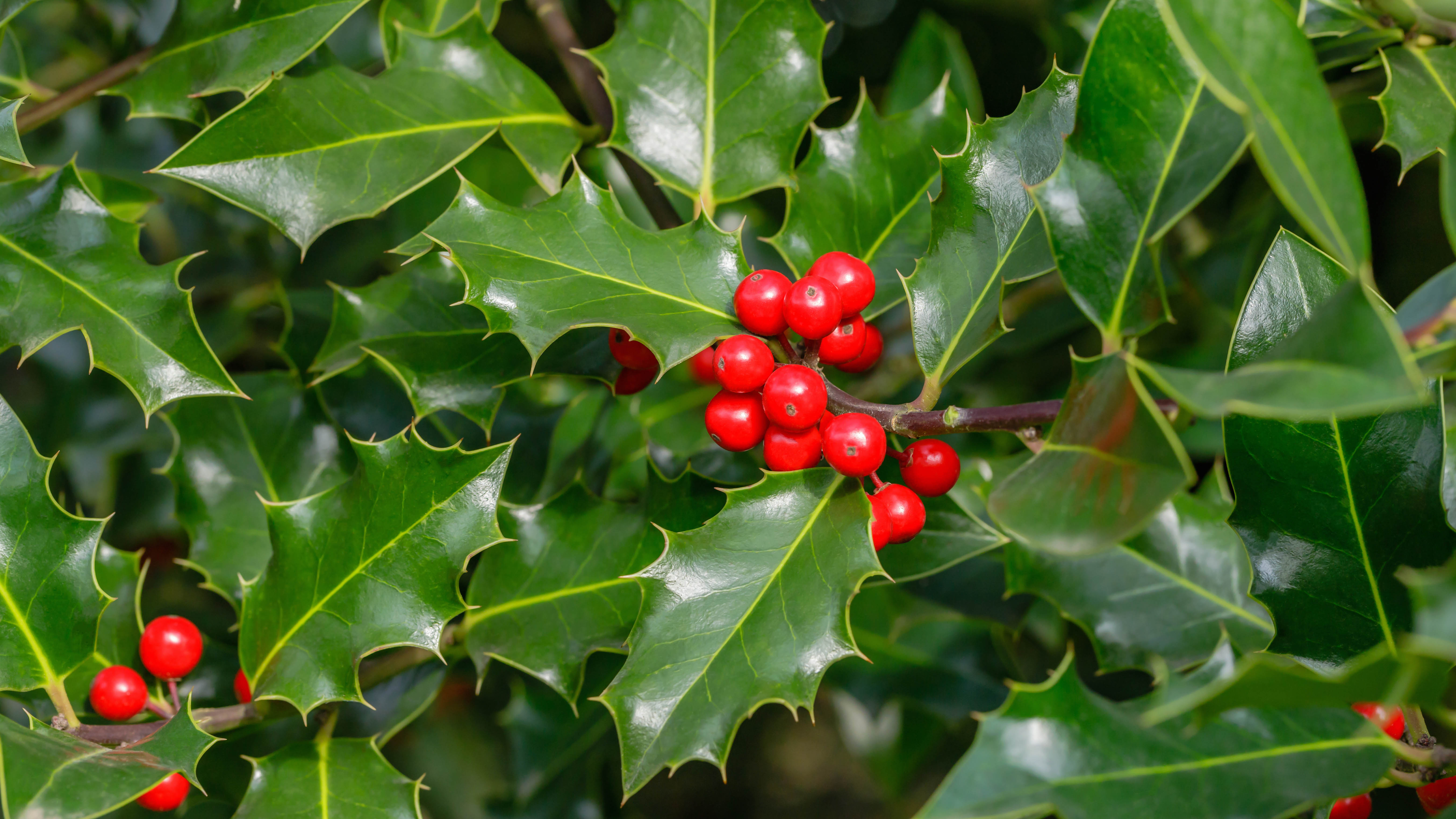
Hollies can add a splash of color as well as festive cheer to your yard, and being mostly evergreens, they’re here to stay throughout the year. These pretty shrubs and trees are filled to the brim with berries during the winter, providing some much needed color when your yard is covered with snow. And thanks to their dense (and spiky) nature, noise won’t travel through it so easily — not even festive carols!
The USDA zones will vary depending on the variety of holly, but American holly grows best in zones 5-9. Hollies generally prefer to be placed in the full sun, with slightly acidic, but well-draining soil. Having said that, hollies are pretty adaptable, so don’t worry if conditions stray somewhat. Make sure water is readily available, watering daily for the first week, followed by applying two inches a week thereafter. Holly trees and their berries are toxic to both people and pets though, so take care around this shrub/tree.
More from Tom's Guide
- 7 plants that will keep wasps out of your yard
- These are the best fast-growing trees for shade and privacy
- Here are the best trees to grow in containers

Katie Mortram used to be a Homes Editor for Tom's Guide, where she oversaw everything from kitchen appliances to gardening tools, as well as smart home tech. Specializing in providing expert advice for cleaning and home manintenance, she now works as Household Advice Editor for Good Housekeeping.
-
EricZwerling It is unfortunate that this article perpetuates a common misconception that a single row of bushes or trees will have any beneficial acoustical effect. It's just not so; they will not "soundproof your yard". In order for vegetation to provide any measurable sound attenuation, the vegetative buffer must be several dozen feet thick, at the least. This is documented in the International Standard ISO-9613 "Acoustics - Attenuation of sound during propagation outdoors," which is the basis for all serious acoustical modeling outdoors. Trees may provide some minor psychological benefit by obscuring the sound source, but even that is not certain. In a paper published some years ago in the Journal of the Acoustical Society of America, some people were actually more annoyed by the noise after putting up a row of trees. After going to the effort and expense, the sound level didn't change to match their heightened expectations. A solid wall is a much better solution to problematic noise levels (so long as it breaks the line of sight between the source and receptor, including second floor bedroom window) as are better quality windows. Neither, however, is as pretty as some nice landscaping. Eric Zwerling, Director - Rutgers University Noise Technical Assistance Center.Reply
